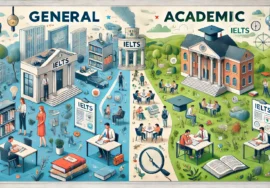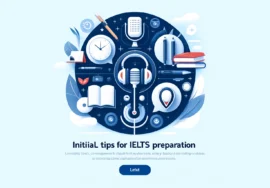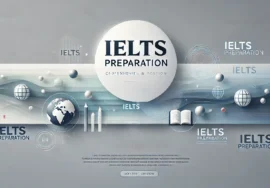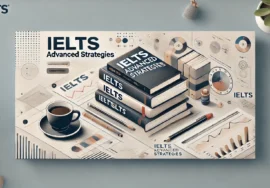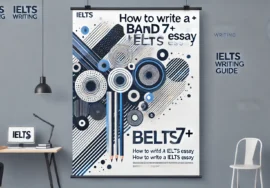
Mastering Tricky Word Pairs in English
Mastering tricky word pairs in English is crucial for effective communication, especially in contexts like the IELTS Writing test, where precise word choice can significantly impact your score. Below, we expand on the guide provided, offering additional tips, examples, and exercises to help you excel. Understanding these subtle yet critical differences will not only improve your language skills but also boost your confidence in both written and spoken English.

1. Affect vs. Effect
Affect is typically a verb, meaning “to influence” or “to cause a change.”
- Example: The new policy will affect the economy positively.
Effect is usually a noun, meaning “a result” or “a consequence.”
- Example: The effect of the new policy was an increase in employment.
Mnemonic Device:
- Affect is for Action.
- Effect is for End result.
Practical Tip:
If you can replace the word with “influence,” use affect. If you can replace it with “result,” use effect.
Additional Examples:
- The teacher’s words affected her deeply. (verb)
- The effect of her words was transformative. (noun)
Common Errors and How to Avoid Them:
Many learners confuse these words in sentences with abstract subjects. Practice by writing sentences using both words. For example: “How does the weather affect your mood?” versus “The effect of the weather on mood is well-documented.”
Advanced Tip:
Consider verb tense and noun forms for complex sentences: “The speech had a profound effect on the audience, affecting their attitudes.”
Exercises:
- Identify whether the following sentences use “affect” or “effect”:
- The medicine had an immediate ___ on her symptoms.
- The storm didn’t ___ their plans as much as expected.
- Write two sentences that illustrate the correct usage of both words.
2. Accept vs. Except
Accept means “to receive” or “to agree to.”
- Example: I gladly accept your invitation.
Except means “excluding” or “not including.”
- Example: Everyone passed the test except John.
Context Clues:
- Look for indications of inclusion or agreement for accept.
- Look for exclusion or differentiation for except.
Additional Examples:
- She accepted the award with grace. (verb)
- All employees, except for the interns, attended the meeting. (preposition)
Advanced Usage:
“Accept” can also imply consent to reality or situations, e.g., “He accepted his fate with dignity.” Meanwhile, “except” might appear in formal contexts, e.g., “The clause applies except where explicitly stated otherwise.”
Practice Tip:
Focus on situations where both words might appear in the same context. For instance: “I accept the terms, except the clause about refunds.”
Exercises:
- Fill in the blanks with “accept” or “except”:
- She was happy to ___ the new role.
- Everyone ___ Tom joined the team meeting.
- Write a short paragraph using both words correctly in context.
3. There/Their/They’re
These homophones often confuse even fluent speakers, but their meanings are distinct:
- There refers to a place or position.
Example: The keys are over there. - Their indicates possession.
Example: The students forgot their books. - They’re is a contraction of “they are.”
Example: They’re coming to the party later.
Quick Check:
- Replace “they’re” with “they are” to see if it fits.
- Check if “there” makes sense as a location.
- Verify if “their” fits as a possessive pronoun.
Additional Examples:
- There is a clear path to success.
- Their plans are well thought out.
- They’re excited about the upcoming event.
Practice Tip:
Write sentences combining all three forms: “They’re going to park their car over there.”
Exercises:
- Correct the errors in the following sentences:
- Their going to the store later.
- The cat is over their.
- They’re house is beautiful.
- Write a story using all three forms at least twice.
4. Its vs. It’s

Its is a possessive pronoun, indicating ownership.
- Example: The dog wagged its tail.
It’s is a contraction of “it is” or “it has.”
- Example: It’s been a long day.
Practical Tip:
If you can replace the word with “it is” or “it has,” use it’s. Otherwise, use its.
Additional Examples:
- The company updated its policy.
- It’s important to review your work carefully.
Advanced Exercise:
Challenge yourself with ambiguous sentences: “It’s surprising how the cat loves its new toy.”
Exercises:
- Identify whether “its” or “it’s” fits in the blanks:
- ___ been a pleasure meeting you.
- The bird built ___ nest in the tree.
- Write sentences where the correct choice of “its” or “it’s” changes the sentence meaning.
Practice Exercises
Fill-in-the-Blank Challenge:
- The heavy rain will ___ the parade. (affect/effect)
- The ___ of the storm was devastating. (affect/effect)
- She didn’t ___ the invitation. (accept/except)
- Everyone went to the meeting ___ Mark. (accept/except)
- Put the bag over ___. (there/their/they’re)
- ___ looking forward to the trip. (there/their/they’re)
- The cat groomed ___ fur before taking a nap. (its/it’s)
- ___ been a tough journey, but we made it. (its/it’s)
Error Correction:
Identify and correct mistakes in these sentences:
- Its a great day to go hiking.
- The effect of her actions didn’t effect me much.
- Everyone was there accept the host.
- There going to their favorite cafe.
Advanced Paragraph:
Write a short story using at least three pairs of these tricky words. Focus on creating clear context for each use.
Proofreading Tips
- Read Aloud: Reading your writing out loud helps catch errors that may go unnoticed when reading silently.
- Context Awareness: Always consider the role a word plays in a sentence (verb, noun, etc.).
- Grammar Tools: Use grammar-checking tools, but don’t rely on them exclusively. They can miss nuances or context-specific errors.
- Peer Review: Have someone else review your work; a fresh perspective often catches mistakes.
- Note Recurring Errors: Keep a list of your common mistakes and review it regularly to avoid repeating them.
- Slow Down: Proofread in stages. Focus first on word choice, then sentence structure, and finally overall coherence.
Conclusion
Mastering these tricky word pairs is a vital step toward improving your writing clarity and accuracy. With practice and mindfulness, you can avoid common pitfalls and enhance your confidence, especially in high-stakes exams like the IELTS. Remember: precision in word choice is not just a skill—it’s a superpower. Happy learning! Whether you’re crafting an essay, drafting an email, or simply engaging in conversation, these small improvements in word usage can make a big difference. Take your time, practice consistently, and enjoy the journey to language mastery!



